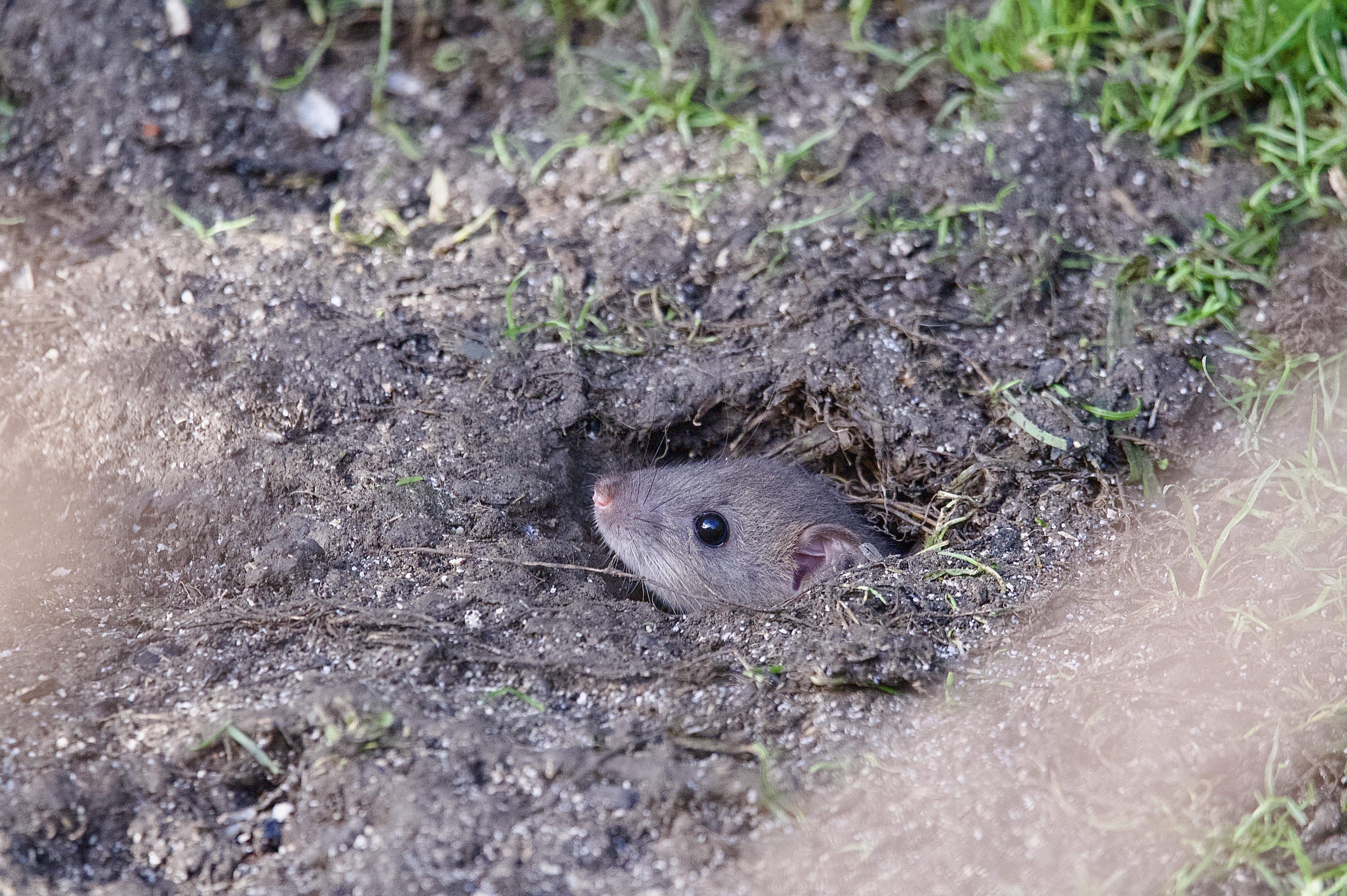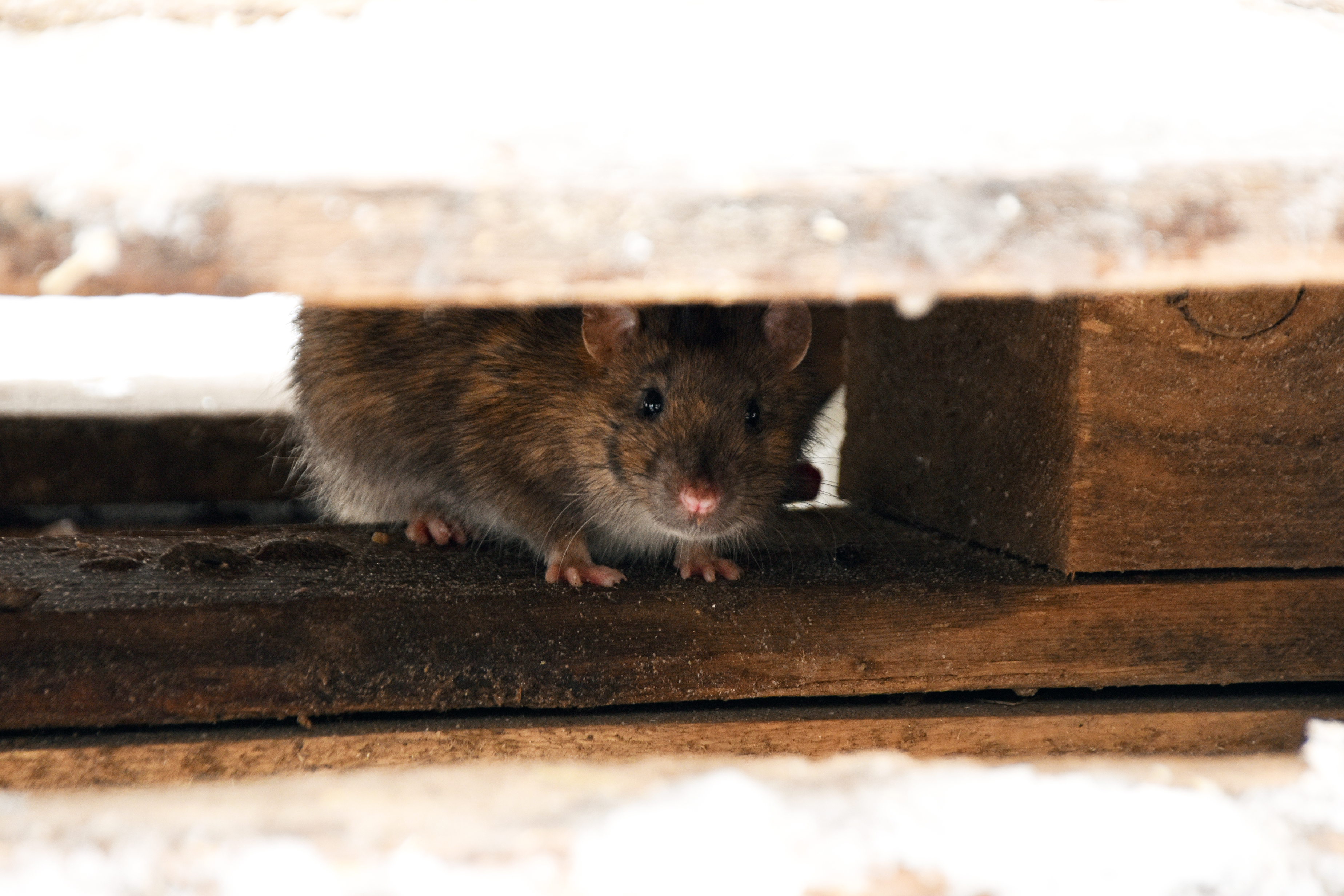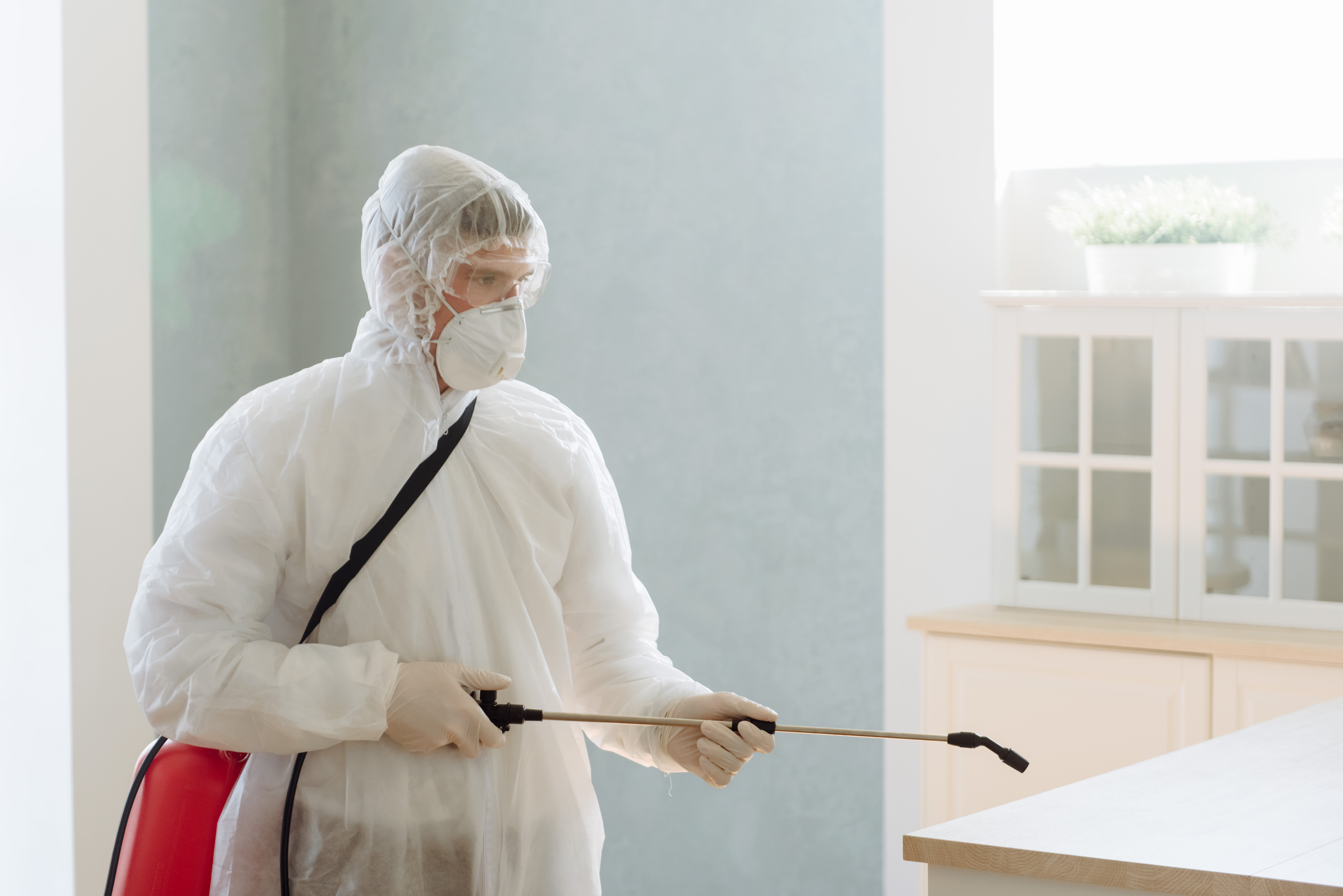
Bats may have their benefits, but you don't want them taking up residence in your home. This guide will help you understand bat removal costs.
These tell-tale signs can tip off a rat infestation


Signs of a rat infestation include droppings, gnaw marks, grease smudges, and scratching noises in walls or ceilings.
Rats pose health risks by spreading serious diseases like hantavirus and leptospirosis through their urine, feces, and bites.
Rats can cause structural damage by gnawing through wood, wires, insulation, and even plastic pipes.
DIY methods may help with minor issues, but professional intervention is often necessary for full-blown infestations or hidden nests.
Few things are more unsettling than spotting signs of rats in your home, but the sooner you’re certain there’s an infestation, the sooner you can address it. From droppings and gnaw marks to hidden nests and strange noises, several warning signs of rats can tip you off to their presence. This guide will cover how to pinpoint a rat infestation and what to do if you find one.
Besides the “ick” factor, rats can pose a risk to your health, home, and belongings. They can chew through wood, insulation, wiring, and even plastic pipes, creating potential fire hazards and structural issues.
Even worse, they spread diseases like hantavirus, leptospirosis, and salmonellosis through their urine, feces, and bites. And because rats are social, seeing one often means that there are more hiding nearby.
Even if you don’t see a rat in your home, you might see the evidence they leave behind. Here are the key signs of rats to look out for.
Small, dark, pellet-shaped droppings in drawers, under sinks, along baseboards, or in the pantry indicate active rat traffic. Fresh droppings are soft and moist, while older ones are hard and dry.
Rats tend to travel the same paths repeatedly, leaving behind oily streaks on walls, baseboards, or furniture. These smudges come from the natural oils in their fur.
Rats chew constantly to file their ever-growing teeth. Look for large, rough bite marks on wood, plastic, cardboard, or electrical wiring. Chewed-through wires or containers are serious signs of infestation.
Hearing noises in walls, ceilings, or floors—especially at night—is a clear sign of rats. The sounds may include scratching, scurrying, or squeaking.

Rats build nests in warm, hidden areas using shredded paper, fabric, or insulation. Common nesting spots include attics, basements, and behind appliances. Outdoors, rats dig burrows near foundations, sidewalks, and shrubbery.
Rats can cause large holes in floors, drywall, and cabinetry. Weakened or hollow-sounding surfaces may be from rats chewing through structural materials.
In dusty areas, rats leave behind four-toed front and five-toed back footprints. They also form visible trails (rat runs) through grass or insulation where they travel frequently.
A strong, unpleasant odor (especially in enclosed spaces) may indicate urine or a decomposing rat. Pets often detect the smell first and may show interest in particular areas.
If you’re seeing rats during the day, hearing persistent scratching and scurrying noises in the walls, or finding new droppings regularly despite using traps, then it’s time to call a professional pest control service to help with your rat problem. Large infestations with hidden nests can be difficult to manage without professional-grade tools and expertise, as rats are skilled at hiding and can nest in hard-to-reach areas like walls, attics, or crawlspaces.
A licensed local rat exterminator can quickly assess the severity of the problem, locate nests, and implement targeted treatments to eliminate the entire population. Professionals know how to prevent re-infestation by sealing entry points and addressing attractants, helping your home stay rat-free permanently.
While it’s possible to tackle a minor rat problem on your own using traps, bait stations, and repellents, DIY rodent control methods aren’t always effective, especially if you’re dealing with a full-blown infestation. Rats are intelligent and cautious around unfamiliar objects, which makes trapping them tricky and time-consuming. They also reproduce quickly, so missing a few can lead to a new infestation in no time.
If rats continue to return or you're seeing signs of a larger infestation, it's best to bring in a professional. Pest control experts can assess your home, eliminate the root of the issue, and help prevent future issues with rats and other rodents in your home.
Follow these guidelines for preventing rats from inviting themselves into your home:
Seal potential entry points: Use caulk, steel wool, or metal flashing to cover cracks, holes, or gaps around your home’s exterior, especially around pipes, vents, and foundations.
Store food properly: Keep dry goods in airtight containers, and clean up spills or crumbs right away, especially in kitchens and pantries.
Declutter and maintain your yard: Learn how to get rid of rats in your yard by trimming overgrown shrubs, storing firewood off the ground, and keeping outdoor garbage cans sealed tightly.
Clean regularly: To minimize what attracts rats to your home, maintain a diligent cleaning routine and clean up food spills immediately.

The average cost to hire a professional to exterminate rats is $400, with most projects ranging between $180 and $620. Severe infestations that require fumigation can approach upwards of $1,500. Prices will come down to factors such as the severity and location of the infestation, the size of your home, and the method of extermination. Consult a local rat exterminator to get an estimate for removal services based on your home size and the size of the infestation.
From average costs to expert advice, get all the answers you need to get your job done.

Bats may have their benefits, but you don't want them taking up residence in your home. This guide will help you understand bat removal costs.

Whether you have bugs, bats, or rodents invading your home, you’ll want to contact an exterminator quickly. Find out how much pest control costs in Columbus, OH.

Your mosquito misting system cost will vary based on factors such as the size, type, brand, and more. Find out what the budget for this system looks like.

Roaches in your cabinets can make your life hard, and they’re difficult to eliminate. Read on to learn how to get rid of cockroaches in your kitchen cabinets.

Bees with a hive in your wall cavity present a host of problems: Our guide will show you the best ways to remove them safely, especially if you want to save the bees.

Cockroaches are annoying, but German cockroaches are on another level. Here’s how to get rid of German cockroaches and when to call in an exterminator.